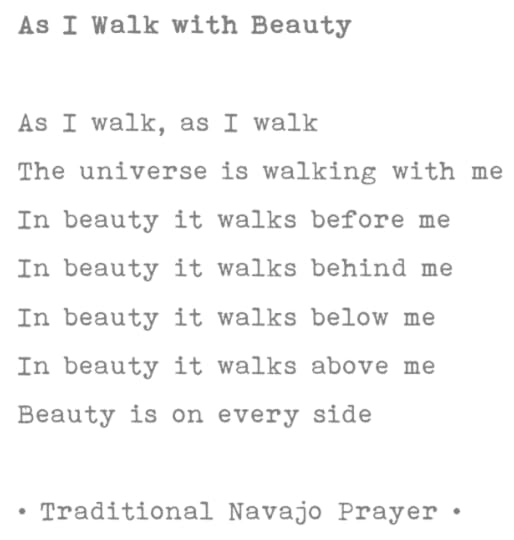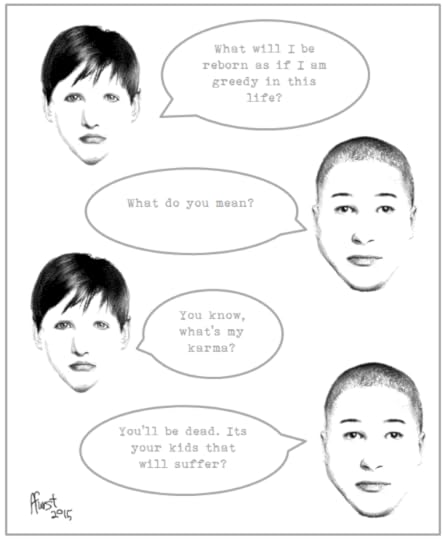Andrew Furst's Blog, page 78
February 1, 2016
People with Houses (Why I’m Mad About Homelessness)
Estimated reading time: 6 minute(s)
Her name is Cathy. I knew I’d remember her name. She shares it with my sister. I spent some time with her Saturday afternoon in a church on Beacon Hill. She’s cheerful, polite, and appreciative of the smallest kindnesses.
We had business to attend to, but she was not going to forego the important preliminaries. She was slow and deliberate, a sign of her wisdom and maturity, someone who knows how to connect with people.
She had a firm but graceful handshake, and clear strong eyes. No matter what expression her face held, you could see the happiness that was her foundation.
Before we met, it was explained to me the people who travel in Cathy’s circles had a name for folks like me. It was not a derogatory term, but deep in its meaning. The term is quick and decisive in describing our relationship. Cathy and her colleagues call folks like me “People with Houses”.
Our business that day was to find her a pair of boots to replace the thin shoes she had been wearing in the snow and rain since November. It brought me great satisfaction to be help her find what she needed. That and the smile on her face and the gratitude she expressed.
I learned a lot this weekend, much of it bleak and heart breaking, but much of it uplifting and affirming.
I asked the question, which is on the minds of many who are at a loss on how to help people without houses. “What is the best way to help?” The answer I got was swift and clear. Get involved, meet and talk with homeless people, and let them know that you care.
Another message was delivered powerfully by the beloved Rev. Mary Jane Eaton, Associate Pastor of the Common Cathedral, the group that sponsors the City Reach Program I participated in. When it comes to homelessness it is OK to be mad. Because out of anger comes action. If we can choose to act skillfully our anger will have served a greater purpose. Raising awareness and empathy tend to lead to inaction. So when it comes to homelessness, anger can be a helpful tool.
So let it be known that I’m mad, mad as hell about homelessness.
If you want to help, consider donating to my GoFundMe fundraiser to provide much needed underwear and bras to people without houses.
Dialectic Two-Step is an ongoing series of my thoughts on questions that come my way.
Wisdom lies neither in fixity nor in change, but in the dialectic between the two. - Octavio
Get Each Week's Dialectic Two Step In Your Email Box
If you enjoyed this post, please like and share.
The post People with Houses (Why I’m Mad About Homelessness) appeared on Andrew Furst.
People with Houses
Estimated reading time: 6 minute(s)
Her name is Cathy. I knew I’d remember her name. She shares it with my sister. I spent some time with her Saturday afternoon in a church on Beacon Hill. She’s cheerful, polite, and appreciative of the smallest kindnesses.
We had business to attend to, but she was not going to forego the important preliminaries. She was slow and deliberate, a sign of her wisdom and maturity, someone who knows how to connect with people.
She had a firm but graceful handshake, and clear strong eyes. No matter what expression her face held, you could see the happiness that was her foundation.
Before we met, it was explained to me the people who travel in Cathy’s circles had a name for folks like me. It was not a derogatory term, but deep in its meaning. The term is quick and decisive in describing our relationship. Cathy and her colleagues call folks like me “People with Houses”.
Our business that day was to find her a pair of boots to replace the thin shoes she had been wearing in the snow and rain since November. It brought me great satisfaction to be help her find what she needed. That and the smile on her face and the gratitude she expressed.
I learned a lot this weekend, much of it bleak and heart breaking, but much of it uplifting and affirming.
I asked the question, which is on the minds of many who are at a loss on how to help people without houses. “What is the best way to help?” The answer I got was swift and clear. Get involved, meet and talk with homeless people, and let them know that you care.
Another message was delivered powerfully by the beloved Rev. Mary Jane Eaton, Associate Pastor of the Common Cathedral, the group that sponsors the City Reach Program I participated in. When it comes to homelessness it is OK to be mad. Because out of anger comes action. If we can choose to act skillfully our anger will have served a greater purpose. Raising awareness and empathy tend to lead to inaction. So when it comes to homelessness, anger can be a helpful tool.
So let it be known that I’m mad, mad as hell about homelessness.
If you want to help, consider donating to my GoFundMe fundraiser to provide much needed underwear and bras to people without houses.
Dialectic Two-Step is an ongoing series of my thoughts on questions that come my way.
Wisdom lies neither in fixity nor in change, but in the dialectic between the two. - Octavio
Get Each Week's Dialectic Two Step In Your Email Box
If you enjoyed this post, please like and share.
The post People with Houses appeared on Andrew Furst.
As I Walk with Beauty – Traditional Navajo Prayer

Quotes -The path to right view is an arduous walk through fields of manure.
Get Each Week's Quotes In Your Email Box
If you enjoyed this post, please like and share.
The post As I Walk with Beauty – Traditional Navajo Prayer appeared on Andrew Furst.
Failing Other’s Expectations? – Dialectic Two Step
Estimated reading time: 11 minute(s)
Question: So I keep looking for words or passages on how to deal with the feelings that arise when others intimate you have not done your best, when in fact you always try to do so. I guess that’s the feeling of failing other’s expectations. What do you think?
Response: I think you’ve nailed the cause. Expectations (from others and yourself) create some pretty intense emotions. When your mind ruminates on these things they get magnified and take on a life of their own. A couple of thoughts on how I deal with expectations (and by no means believe that I’m good at it).
Mindstorms
One of the things that meditation teaches you is that your mind can spin up some pretty intense storms. If you let the storm drag you along, you’ll end up suffering. Think of it like a dog; the mind is the tail. Letting thoughts drag you down is like the tail wagging the dog. You’ve become the slave to these meandering mental formations.
One aspect of meditation is developing a mature relationship with your thoughts. It’s just like prioritizing tasks. You are more productive when you focus your attention on the high priority things and don’t get pulled into the small things (Don’t sweat the small stuff?).
Observing your thoughts in meditation gives you insight into how random thoughts can be. Sometimes, they can be a huge distraction and keep you from the important stuff. Other times they are right on and demand your attention. Discerning the difference is the skill that meditation develops.
As far as expectations are concerned, discerning whether or not they are important is very useful skill.
Other People’s Problems
I heard a speaker at work the other day who mentioned something that put other people’s expectations in perspective. If you think about it, we’re always thinking about ourselves. It’s a fact. So, how important could someone else’s expectations of you be to them? My guess is that they’re pretty trivial and their interest in your behavior is only from the perspective of how they can benefit.
Communication is always one part message and one part relationship. When people forget about the relationship, they tend to be cold and harsh (I can get like this). When you recognize this behavior in others, you have a right to point it out. An expectation is a demand on your time and energy. It is fair to say that if there is an expectation for you to produce something or behave in a certain way, that there be something in it for you. At the very least you should be motivated to comply.
It’s also fair to acknowledge that, first and foremost, work done is worthy of praise. A recognition of the complexity involved in getting the work done should be accepted as part of the outcome. You can’t please everyone all of the time. Inversely, one should not expect to be pleased all the time (expectations on expectations).
Compassion
This leads to one of the most fundamental Buddhist ideas – compassion. The word is from the Latin, meaning to share in suffering. These experiences of suffering arise from expectations and wanting to be pleased all the time. Because we rarely get what we expect or want, we always end up disappointed.
Connecting with this insight is key to the Buddhist path of liberation. When we recognize that we ourselves constantly seek pleasure and satisfaction of our expectations, oblivious to the fact that most of the time we fail, a lightning bolt strikes. Despite all of our intelligence and maturity we keep doing the same things over and over again. We keep failing over and over again, and act surprised when we fail again.
This disease is human nature. When we recognize it, it seems appropriate to develop some compassion for ourselves. When we see it in others, we should recognize it as the same disease. This makes us companions on the same quest for healing and liberation.
This recognition can give us a little space in which we can process how we and the antagonists in our stories feel. This isn’t the last step, but it’s a good first step towards shifting the conversation from a cold exchange of information to a dialog between two people in a relationship.
Dialectic Two-Step is an ongoing series of my thoughts on questions that come my way.
Wisdom lies neither in fixity nor in change, but in the dialectic between the two. - Octavio
Get Each Week's Dialectic Two Step In Your Email Box
If you enjoyed this post, please like and share.
The post Failing Other’s Expectations? – Dialectic Two Step appeared on Andrew Furst.
January 31, 2016
Eagle Lake Glistening – One Minute Meditation
At the cusp of
November
Eagle Lake wears a
mask of glistening
diamonds
What costume did
you shed this year?
These Meditation Videos Are Best Viewed In Full Screen
One Minute Meditations is an ongoing series of short videos, poems, and commentary intended as a meditation. Offered as an opportunity to step back from your cyber routine and settle into a more natural rhythm, if only for a minute.
Get Each Week's Minute Meditations In Your Email Box
These videos are produced for those of us who spend an inordinately large amount of time in the cyber-world. They are not a substitute for unplugging from your devices and taking a stroll near trees, water, or a patch of unkempt grass. Getting out into the world - touching, smelling, hearing, and seeing nature is the best way to reconnect with our prime purpose.
What is our prime purpose? We are feeling and sensing machines. We are the universe looking back on itself. We are witness to the wonders and dangers of living in this corner of the cosmos. We are the seekers looking for connection a little further beyond yesterday's borders and boundaries.
But sitting and staring at the screen robs us of the sustenance that we rely upon for wonder and sanity. These videos are an opportunity to bring the sensations of nature to you, while you're in the cyber-world. Its an opportunity to relax your gaze, resettle your posture, and regain some depth in your breath. Listen and watch the video and allow your self to open up and recharge.
If you enjoyed this post, please like and share.
The post Eagle Lake Glistening – One Minute Meditation appeared on Andrew Furst.
David Bowie – Blackstar – Sunday Morning Coming Down
Continuing in tribute to David Bowie, this is the title track of his final album Blackstar. It’s a work of art.
Sunday Morning Coming Down is an ongoing music video series. The songs fit my definition of music for a lazy couch bound Sunday morning.
Get Each Week's Sunday Morning Coming Down In Your Email Box
If you enjoyed this post, please like and share.
The post David Bowie – Blackstar – Sunday Morning Coming Down appeared on Andrew Furst.
January 30, 2016
Reincarnation Destination? – Say What?

Say What? is an ongoing series of laconic exchanges on Buddhism in the format of a comic strip.
Get Each Week's "Say What?" Comic In Your Email Box
If you enjoyed this post, please like and share.
The post Reincarnation Destination? – Say What? appeared on Andrew Furst.
Still – Tiny Drops (Photography)
Click on an image below to view in the lightbox
 Gears1
Gears1 Glass BW
Glass BW Sundial BW
Sundial BWGet Each Week's Tiny Drops In Your Email Box
All Tiny Drop photos Attribution-NonCommercial-ShareAlike 4.0 International (CC BY-NC-SA 4.0)
If you enjoyed this post, please like and share.
The post Still – Tiny Drops (Photography) appeared on Andrew Furst.
January 29, 2016
Meditations on Gratitude – The Three Questions
Who are the right people?
What is the most important thing to do?
In 1885 Leo Tolstoy told a story of the three questions. The answers were, the most important time is right now, the right people are the people you are with, and the most important thing to do is to do good for those people.
We could adapt the three questions to gratitude.
When is the right time to be grateful?
Who should I be grateful for?
What is the most important way I can show my gratitude?
As with enlightenment, we are not seeking a permanent emotional state of gratitude. There is ebb and flow to life. We will always have moments of anger, ungratefulness, and ill will. But as these states arise, if we are mindful and seek an antidote, gratitude offers a potent remedy. Opening ourselves creates an ocean into which our suffering can dissolve. Acknowledging the infinitude of things to be grateful for can help with that initial softening.
Gratitude does its work in the present moment. The materials are there in front of you, in the form of the people you are with, whether they are friends, coworkers, or strangers. Feeling the heart open to those around you is purifying.
From here, showing gratitude is effortless, germinating from a natural appreciation for those we are with and how they are integral to our survival and well being. The most important way that we can show our gratitude is to let that appreciation usher forth naturally and authentically.
May all living beings have happiness and its causes
May all be free from unhappiness and its causes
May all dwell in equanimity, free of attraction and aversion
May all quickly find the great happiness that lies beyond all misery
May all enjoy inner and outer peace now and forever
Meditations on Gratitude - A weekly series of people and situations I’m thankful for and a short meditation.
Get Each Week's Meditations on Gratitude In Your Email Box
If you enjoyed this post, please like and share.
The post Meditations on Gratitude – The Three Questions appeared on Andrew Furst.
Would Life Be Better Without Technology? – Modern Koans
Question: What is it like to live without technology?
Response: Technology has been integrated into human evolution for hundreds of thousands of years. Probably starting with tool making or language. It’s part of who we are and how we thrive as a species. My thought is that the closest thing to a human without technology is an australopithecine. But there are none alive to ask.
Technology helped us get to where we are today. Doing without it seems impossible. Indulging too heavily creates problems as well.
How do you deal with the problems that are inherent with our devices? Do you rely too heavily on it? Do you spend too much time focused on your device? Do you have a way to manage a happy medium?
I'd love to hear your thoughts in the comments below.
Modern Koans is an ongoing series that recognizes that good questions are often more important then their answers.
The riddles of God are more satisfying than the solutions of man. ― G.K. Chesterton
Get Each Week's Modern Koans In Your Email Box
If you enjoyed this post, please like and share.
The post Would Life Be Better Without Technology? – Modern Koans appeared on Andrew Furst.





